Last month’s arrest of Istanbul mayor Ekrem İmamoğlu, Turkish President Recep Tayyip Erdoğan’s top political rival, presents a new level of authoritarianism in Turkey’s previously illiberal but still competitive political landscape. For much of his 22-year reign, Turkey’s strongman was blessed with a divided and ineffective opposition—but lately, İmamoğlu and a new generation of opposition cadres have challenged that, gaining momentum and popularity. In last year’s local elections, the opposition swept across the country, winning all major cities and elevating İmamoğlu to a de facto opposition leader.
İmamoğlu’s arrest is likely intended to disrupt that march. With İmamoğlu in jail, Erdoğan looks like he is trying to redesign Turkey’s opposition in much the same way he has remodeled the nation’s media, judiciary, and state institutions. He is ushering in a new era that some regime insiders now call “the second republic,” marked by a seamlessly consolidated regime around one man with no real political competition, separation of forces, or checks on the decisionmaking.
Silence from the West
Yet the arrest also coincides with a geopolitical crisis so large and complex that the international reaction to what happened in Turkey has largely been muted. Beyond the wars in Gaza and Ukraine, there are lingering uncertainties about the future of the transatlantic alliance, global trade, and liberal democracy. With populism forging ahead across Europe, threatening the long-term survival of the European Union, and a firehose of controversial moves from the Trump administration that many fear could threaten the rule of law in the United States, Erdoğan’s move may not look so out of sync with global trends.
Despite massive protests, Erdoğan seems to have won the first round against his opponents—thanks in part to the nine-day break for Eid, the holiday marking the end of Ramadan, and the reticence of Ankara’s Western partners. Turkey’s precious strategic value for the West and Erdoğan’s dexterous balancing act between Russia, Europe, and the United States serve to shield the Turkish leader from international criticism of his domestic conduct. İmamoğlu’s arrest came on the heels of a new European initiative to reintegrate Turkey into the continent’s defense and just days after Erdoğan’s first official phone call with President Donald Trump—described as “great” and “transformational” by Steve Witkoff, Trump’s special envoy.
Erdoğan’s geopolitical gambit
If Ukrainian President Volodymyr Zelenskyy has “no cards,” as Trump claimed at a scandalous White House meeting last month, Erdoğan has nothing but cards.
Ankara knows that Europeans need Turkey more than ever to effectively push back against Russia in the Black Sea, on NATO’s eastern flank, and in the Caucasus—especially after a potential U.S.-brokered ceasefire between Russia and Ukraine. Ankara also knows that Europeans need Turkish defense contractors and possibly the country’s defense industrial base to revamp their own defense capabilities in preparation for a U.S. withdrawal from Europe. Turkish defense companies may not have the most cutting-edge defense technology, but they can produce the basic essentials of warfare—from tanks and armored vehicles to ammunition, missiles, and drones—at a speed and scale that surpasses Europe’s.
Washington’s agenda is not democracy
The Trump administration is similarly uninterested in weighing in on Turkey’s democracy. Trump had already made clear in his first term that he did not see Turkey’s democratic backsliding as an issue in bilateral relations—abdicating a long-standing U.S. policy. Despite Erdoğan’s consistent and loud criticism of Israel, Washington is finding itself unable to banish Turkey from its Middle East strategy.
As protests against İmamoğlu’s arrest were raging across Turkey, Foreign Minister Hakan Fidan was in Washington last week to discuss Ukraine and Syria. Trump views Erdoğan as the real winner in Syria since the fall of the Assad regime: “Turkey’s the one behind it. He’s [Erdoğan] a very smart guy. They’ve wanted it for thousands of years, and he got it.” Washington does not seem to care much about the fate of post-Assad Syria, but it needs Ankara to stabilize the country in a way that keeps the Islamic State group in check and allows U.S. troops in the north to withdraw—something Trump tried to do in his first term. Turkey is also an important partner in U.S. policies regarding its neighbor Iran; the Trump administration is currently weighing its options on whether to pursue war or a peaceful resolution through a new nuclear deal with Tehran.
All this gave Ankara reason to assess that arresting İmamoğlu would not result in an international uproar. Europeans barely mumbled, Americans were inaudible, and Ankara has gotten the message that life goes on.
In Turkey, the rules of the game have changed
Meanwhile, Turkish citizens continue to be upset about the arrest of Istanbul’s mayor on corruption charges, seeing that this effectively changes the rules of the game from competitive authoritarianism to something much darker. Despite bouts of repression and interruptions from military coups, the multiparty system had huge legitimacy in the eyes of the Turkish public, and Turkish voters typically felt dedicated to the electoral process. Erdoğan has built his own political legacy on representing the “milli irade” or the “will of the people” against the establishment. He was once the mayor of Istanbul and rose to prominence—and eventually leadership—in national politics after being imprisoned in 1999 for a poem he read. Last week, nearly 15 million people voted for İmamoğlu in an improvised symbolic primary, and the street protests raged on—an act of civil disobedience willingly ignored by the government.
Turkey’s self-inflicted political chaos has also damaged the country’s economic recovery, led by Finance Minister Mehmet Şimşek, who had stepped in two years ago to stabilize the financial markets and instill confidence in domestic and foreign investors. Within a week of protests, Turkey’s central bank had to burn through $26 billion of its foreign reserves in order to keep the Turkish lira stable—something that Şimşek previously said he would not do.
Turkey is in a darker place than it was a month ago, but a regime change is not imminent due to external factors and the effectiveness of Turkey’s law enforcement mechanisms. Erdoğan’s strategy seems to be maintaining the pressure on Turkey’s main opposition, the Republican People’s Party (CHP), while continuing the budding peace process with Kurds. Ankara seems to be hoping that protests, including an economic boycott, will eventually taper off.
Peace talks with Kurds amid a democratic retreat
Over the past few months, Turkey has been engaged in talks with the Kurdistan Workers’ Party (PKK), through its imprisoned leader Abdullah Öcalan, with the goal of peeling off Turkey’s Kurds from the opposition bloc inside Turkey—as well as pushing for a constitutional agreement between the Kurds and Damascus in Syria. The negotiations with Kurds help consolidate the Turkey-backed interim president Ahmed al-Sharaa in Syria, but they can also help Erdoğan dismantle the large electoral coalition between Turkey’s secularists and Kurds that the CHP built over the last few years. İmamoğlu, as a political figure, was central to that alliance.
The peace process with the Kurds is at a critical stage, with Öcalan publicly calling for the PKK to disarm in return for democratic politics inside Turkey. The “democratic” part of that equation does not look real under Turkey’s current atmosphere, but a deal is still on the table—one that would possibly allow Erdoğan to push for constitutional arrangements to run for the presidency a third time.
What just happened in Turkey is part of a global democratic retreat. The lesson for democrats everywhere is that populism often paves the way for autocracy. When state capture unfolds gradually—through the systematic erosion of media independence, judicial integrity, and institutional checks—it can become difficult, if not impossible, to reverse. This is the reality many Turks are now facing.
The Brookings Institution is committed to quality, independence, and impact.
We are supported by a diverse array of funders. In line with our values and policies, each Brookings publication represents the sole views of its author(s).

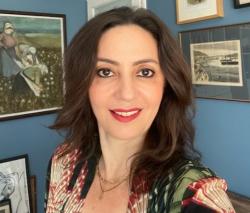
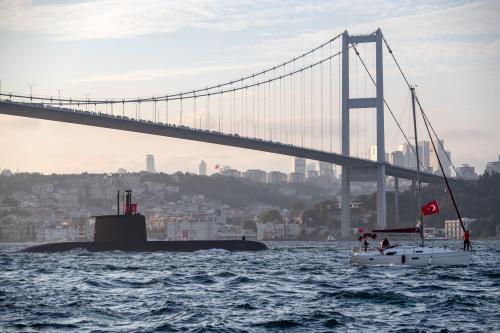
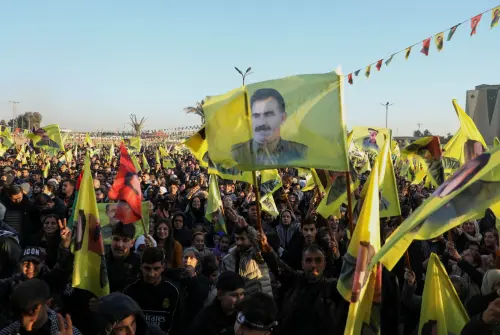
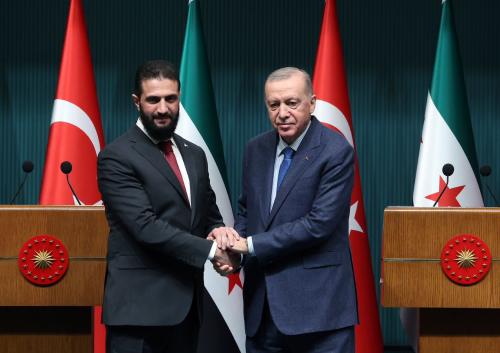

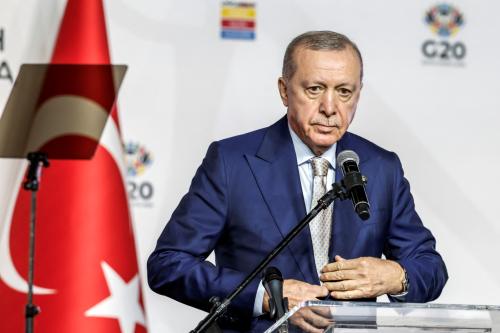

Commentary
Empowered abroad, Erdoğan arrests his top domestic rival
When state capture unfolds gradually, it can become difficult, if not impossible, to reverse. This is the reality many Turks are now facing.
April 3, 2025